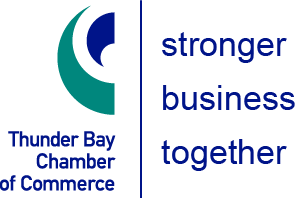The Thunder Bay Chamber of Commerce represents nearly 800 member companies with over 20,000 employees in the Thunder Bay area. We welcome the opportunity to provide input into the 2025 Federal Budget.
IMMIGRATION
Canada’s demographic challenges are well-documented, and our current population levels will not enable us to achieve the economic growth our country needs. The government must leverage immigration, aligning programs with future economy-critical skills gaps and labour needs. We know from the analysis of the Northern Policy Institute (NPI) that Northern Ontario needs 50,000 newcomers just to maintain our current employment levels by 2041. Without continued efforts to address labour shortages over the long-term, Northern Ontario communities will face challenges with sustainability let alone growth.
We recommend that the Rural Communities Immigration Pilot be made permanent to provide a long-term economic pathway to rural communities including Thunder Bay. This will allow for continuity of program delivery, continued support for employers in our community, increasing our economic impact within our community, and supporting candidates who want to make Thunder Bay their home.
While FedNor’s project-based funding has been instrumental in the delivery of these programs for Thunder Bay and other communities across Northern Ontario, we recommend that a long-term funding stream be identified to support the resources needed for program delivery. This would enable municipalities to secure their own budgets for the long-term with a stable long-term matching source.
In addition, we support the creation of the Canadian International Workforce Program to fill longstanding vacancies in low skilled jobs that Canadians and Permanent residents are not willing to take.
SOFTWOOD LUMBER
The forest sector is an economic backbone for our region, supporting thousands of direct and indirect jobs and providing support for local infrastructure, energy generation, transportation networks, and community stability. The recent escalation of U.S. anti-dumping and countervailing duties to 35.19% and the possibility of additional s.232 tariffs in the weeks ahead will have immediate and long-lasting impacts on families and communities throughout Northwestern Ontario. We urge the Canadian Government to make resolving the softwood lumber dispute a top trade priority in bilateral discussions with the United States, including at the Council of the Federation and in collaboration with key ministries.
We welcome the supports that have been recently announced to support the forest sector. We urge the Government to ensure that eligibility criteria for these supports does not exclude large businesses such as Domtar who continues to be significantly impacted at a cost of over $3 million per month in softwood lumber duties for its Ontario operations.
We encourage the Government to continue to work in close partnership with forest-sector stakeholders to develop mitigation measures and economic supports as needed to protect communities from further harm.
MINING
Canada’s permitting timeline for major mining projects averages 15 to17 years. Proponents face complex, sequential reviews and redundant data requirements across all jurisdictions. While the federal government has committed to streamlining project approvals through a major projects office and the development of a ‘one-window’ approach, implementation remains slow and inconsistent. Several provinces are also developing parallel one window frameworks, but without alignment and system integration across jurisdictions, these efforts will contribute to further fragmentation rather than solving it.
We recommend that the Government of Canada streamline regulatory processes through a harmonized federal-provincial framework and centralized one-window digital interface that enables a ‘one project, one review’ model with clear timelines, transparency, and interjurisdictional coordination. Embed international best practices and ensure early, meaningful, and ongoing consultation with Indigenous rights holders in line with self-determination and free, prior, and informed consent.
The future of Canada’s mining industry lies increasingly in remote and northern regions, where infrastructure gaps—such as limited access to all-season roads, reliable energy, and broadband—significantly increase project costs and environmental impacts. The Mining Association of Canada’s research shows that it costs 2-2.5 times more to build the same precious or base metal mine in the North (off-grid) and 70% of this cost differential is attributed to infrastructure. These heightened costs also curtail attractiveness for exploration investment that is critical to filling the pipeline with the future Canadian mining operations on which continued economic, social and sovereignty benefits are contingent.
The Government has responded to the call for action through the creation of the Critical Minerals Infrastructure Fund for clean energy and transportation infrastructure projects necessary to enable the sustainable development and expansion of critical minerals in Canada, and the Critical Minerals Research Development and Demonstration Program that aims to advance the commercial readiness of processing and other technologies to support critical minerals value chains. While the recent volatility in the prices of critical minerals may have delayed private sector investments that are urgently required for new mines, strong, consistent support from government investment can increase certainty that is needed for long term success.
In addition to greater investment in enabling infrastructure for key mining projects across the nation, better coordination of that spending is needed to make these investments effective. Infrastructure planning should be coordinated between all levels of government, industry, and local communities as well as other economic development projects to ensure synergies and the opportunity to multiply benefits amongst all groups.
We offer our full support for the recommendations put forward by the Canadian Chamber of Commerce in it’s Federal Budget Submission which calls for lower corporate taxes, less regulation and red tape, reduced internal trade barriers, as well as greater investment in Canada’s trade and resource infrastructure.
Thank you for your attention to these recommendations which are focused on building stronger businesses in our community and across the country.


